How to Make a Stand-Out CV for Medical Professionals: Actionable Tips
In a field as competitive as healthcare, your CV is your first impression—and it needs to make an impact. With the right strategy, your CV can reflect not just your experience, but also your value as a healthcare professional. Here’s how to elevate your CV and make it truly stand out.
1. Focus on Value, Not Just Experience
Your experience matters, but what truly gets attention is how you add value. Don’t just list your job titles and responsibilities—focus on the outcomes. What have you accomplished in your roles? How have you positively impacted patient care, efficiency, or team performance? Use measurable results. Instead of saying “Assisted with surgeries,” say “Assisted in performing over 150 cardiac surgeries, reducing patient recovery time by 20%.” This shows your direct contributions and highlights your value.
2. Start with a Strong Professional Summary
Your professional summary is one of the most important parts of your CV. It’s your chance to give the hiring manager a quick snapshot of who you are and what you bring to the table. When relocating or transitioning to a new position, make sure your goals are clear from the start. For example, if you're relocating, include something like, “Seeking a permanent position in [location], where I can contribute my [specific expertise] to a growing healthcare team.” This can preemptively address any concerns a hiring manager may have, such as doubts about your long-term commitment to the area.
For locum professionals looking to transition into a permanent role, it's equally important to be upfront in your summary. By clarifying your objective—"Looking for a permanent position after years of locum work"—you’ll avoid any red flags and show your intent. Being transparent about your goals in this section helps answer questions that might disqualify you otherwise, giving you a head start in the hiring process.
3. Address Short Stints of Employment
If you've had short stints at multiple positions, be sure to address them. Hiring managers often look for longevity in roles, and gaps or frequent job changes may raise questions. Clearly specify the reason for leaving each position. If you transitioned due to contract terms, company restructuring, or any other professional reason, mention it briefly. This helps provide context and shows that your decisions were driven by factors outside of your control or personal goals. Additionally, if any positions were locum contracts, clearly mark them as such. This helps set expectations and clarifies the nature of your employment.
4. Prioritize Your Skills Section
Your technical skills and medical expertise should be easy to spot. Create a separate section to highlight your clinical skills, certifications, and any specialized knowledge that sets you apart. Think about what’s most in-demand in your area and highlight those. For example, if you're a surgical assistant, list specific procedures you've mastered or equipment you're proficient with. Also, include soft skills—effective communication, patient empathy, and leadership, for example—since these are just as important in healthcare.
5. Don’t Overlook Keywords
Recruiters and hiring managers often scan CVs quickly, sometimes using automated tools. Many companies use Applicant Tracking Systems (ATS) to filter resumes based on keywords. Ensure you’re using the terminology that matches the job description. For instance, if the job posting emphasizes “patient management” or “critical care,” make sure those terms appear in your CV, provided they accurately reflect your skills. This can be the difference between your CV being seen by a hiring manager and getting lost in the system.
6. Highlight Continuing Education and Professional Development
Healthcare is always evolving, and employers want professionals who are committed to learning and growth. List any continuing education courses, workshops, and seminars you've attended. Highlight specialized certifications that are relevant to the job. Make it clear that you’re staying up-to-date with new practices, technologies, or medical trends. If you’re working toward additional certifications, mention that too. This shows employers that you're invested in your career and in providing the best possible care to patients.
7. Quantify Your Impact with Data
Numbers tell a powerful story. When you can quantify your experience, it adds weight to your achievements. Whether it's the number of patients you've cared for, surgeries you’ve assisted with, or reductions in patient wait times, concrete data makes your CV stand out. Example: “Managed a caseload of 100+ patients per week, maintaining a 98% satisfaction rate.” These specifics not only demonstrate your abilities but also make your impact measurable and tangible.
8. Tailor Your CV to the Role You’re Applying For
One-size-fits-all doesn’t work in healthcare staffing. Tailor your CV to each role you apply for by emphasizing the experience and skills that matter most for that specific job. Research the organization, their goals, and the role itself, then highlight the qualifications that align with those needs. For example, if you’re applying for a leadership role, emphasize your management experience and ability to lead teams. If you’re applying for a specialized medical position, focus on your technical skills in that area.
9. Showcase Your Cultural Fit
Employers in healthcare are not just looking for technical skills—they’re also looking for candidates who fit within their team culture. While your CV should be focused on your experience and qualifications, it can also hint at your personality. Mention any leadership roles you’ve had, community involvement, or anything that demonstrates your ability to work collaboratively and your commitment to patient-centered care. Cultural fit can make all the difference, and the right employer will value your approach as much as your skills.
10. Clean, Simple Design with Easy Navigation
In healthcare, the content matters most, but presentation is key. Your CV should be easy to read, with clear sections and headings. Use a clean, professional design without distractions—no fancy fonts, borders, or excessive colors. Choose simple, legible fonts, and make sure the formatting is consistent throughout. Make it easy for hiring managers to quickly scan your CV and find the most important information.
11. Always Proofread and Edit
A simple typo or grammatical error can tarnish an otherwise great CV. Always proofread your CV multiple times, and ideally, have someone else review it as well. Errors not only look unprofessional, but they could give the impression that you lack attention to detail—something that’s crucial in healthcare. A clean, error-free CV will immediately set you apart from candidates who didn’t take the time to ensure their document was perfect.

